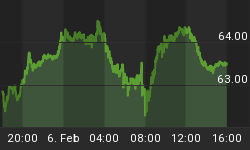As if the damage from Hurricane Katrina was not bad enough, Hurricane George Bush has been gathering strength over the Potomac, and is now a category five monster headed straight for your portfolio. Likening his planned $200+ billion boondoggle to the "Marshal Plan" after the Second World War, Bush is ignoring a simple, but enormous distinction. In 1945, we had the savings necessary to tackle the World's problems; in 2005 we do not have adequate savings to pay for our own.
In my recent commentary "Nothing Saved for a Rainy Day," (available on my web site at http://www.europac.net/archives.asp) I pointed out that Americans, who have indulged their every whim while the sun shinned, have saved nothing for a "rainy" day. As a result, Hurricane Katrina struck the economy at a particularly vulnerable time. If we can not pay to rebuild the lost infrastructure out of accumulated savings, the only legitimate method is to reduce current consumption. Therefore, if President Bush wants to divert scarce resources to rebuild the Gulf Coast, he either needs to raise taxes or reduce other expenditures to pay for it. However, the President wants to pretend that the Gulf Coast can be rebuilt without anyone sacrificing anything, and without any adverse consequences for the over-all economy.
If, as a nation, we had adequate savings, this would have been possible, as we would have already sacrificed during the time period such savings were accumulated. However, by indulging ourselves in the present, we put off such sacrifices for the future. Unfortunately, the future has finally caught up with us. Americans need to reduce their consumption if resources are to be freed up to rebuild the Gulf Coast. Since our economy is over 80% consumption, a recession would naturally follow.
Further, Bush's response sets a dangerous precedent for future natural disasters, such as Hurricane Rita, now a category five storm headed for the Texas Gulf Coast. The administration's assertion that Katrina related spending will not effect the President's plan to cut the deficit in half, as such expenditure are one-time events, and therefore off-budget, is a joke. Sure Katrina is a one-time event, but so is Rita, or any other hurricane, flood, earth quake, wild-fire, or other natural or man-made disasters that are sure to follow. Continuously categorizing reoccurring expenditures as one-time events is absurd.
Though the President may have a God complex, he can not work miracles. Without tax increases or spending cuts, the only other ways to pay for his plan is though borrowing, which means even greater future sacrifices, in the form of tax increases or spending cuts, or through inflation. Since America's foreign creditors are already cutting back on their lending, inflation seems to be the more likely alternative. The recent surge in the price of gold would seem to validate this conclusion.
Do not be fooled by the President's pledge not to raising taxes. Inflation acts like a hidden tax, allowing government to transfer purchasing power from the public to itself. The government finances spending though inflation by issuing bonds that are subsequently purchased by the Federal Reserve, thereby creating new dollars that reduce the purchasing power of existing dollars. The result is that consumer prices rise to reflect the dollar's diminished value. Therefore, if the public does not pay higher income taxes to pay to rebuild the Gulf, it will certainly pay higher inflation taxes instead, as the real values of their incomes and savings will be diminished.
Fortunately for investors there is a loophole for this tax. By denominating your investments in currencies other than the U.S. dollar, the value of your savings and investments will not be diminished. But you need to act fast, before the dollar drops any further. You can begin by downloading my free research report "The Collapsing Dollar: The Powerful Case for Foreign Investing" available at www.researchreport1.com and learn how to avoid the "inflation tax."















